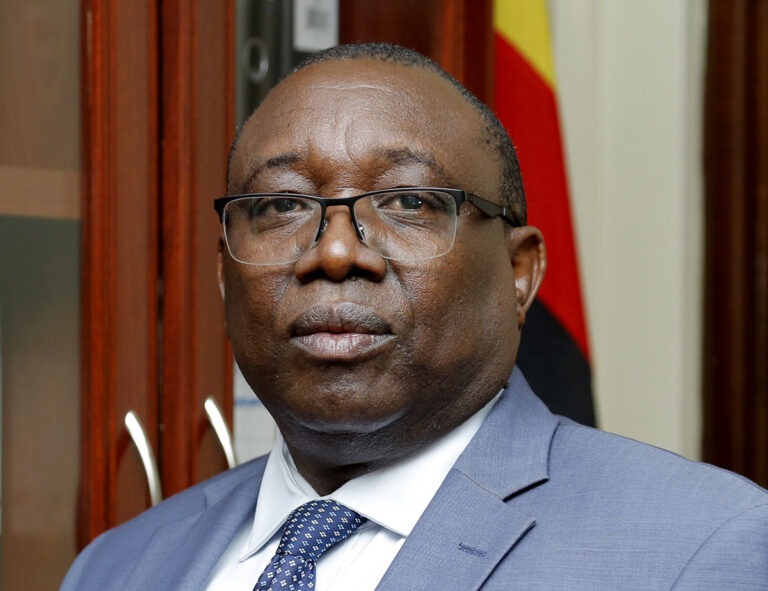In a major crackdown on financial malpractice within government institutions, Uganda’s Criminal Investigations Directorate (CID) has arrested nine senior officials from the Ministry of Finance over their alleged involvement in the fraudulent diversion of Shs 60 billion (approximately USD 15.7 million) of public funds through the Bank of Uganda.
Among those apprehended is Lawrence Semakula, the Accountant General, a pivotal figure in Uganda’s financial management system, responsible for overseeing public funds and ensuring accountability.
His arrest has sent shockwaves across the government, raising concerns over deep-seated corruption within the country’s financial institutions.
The other officials in custody include Jennifer Muhurizi, Mubarak Nansamba, Tony Yawe, Paul Lumala, Mark Kasuku, a one Nayebare, Judith Ashaba, and Deborah Kusiima.
All are believed to have played roles in orchestrating or facilitating the illicit transactions that led to the disappearance of the massive sum.
Police Confirm Investigation and Arrests
Addressing the press, Police Spokesperson Rusoke Kituuma confirmed the arrests, stating that the suspects were taken into custody following weeks of intensive investigations.
“I wish to confirm that today, nine persons were apprehended by our directorate CID,” Kituuma announced.
“You will recall that we have been conducting an ongoing investigation into billions of shillings that mysteriously disappeared, and that news has been circulating widely. In the course of our inquiry, we summoned the nine officers from the Ministry of Finance, and we can now confirm that they are in our custody.”
He further emphasized that authorities are determined to ensure justice is served and that no one involved in the fraudulent scheme will be spared, regardless of their rank or influence.
How the Money Disappeared
Preliminary investigations suggest that the stolen funds were siphoned through a series of complex transactions disguised as legitimate payments authorized by senior officials.
Sources close to the investigation reveal that some of the money was funneled through fake companies, while a portion is suspected to have been laundered through international financial networks.
The scandal has raised fresh concerns about the effectiveness of internal financial controls within the Ministry of Finance and the Bank of Uganda.
Analysts argue that such a significant sum could not have been diverted without the involvement of high-ranking officials with access to critical financial systems.
Public Outrage and Government Response
The arrests have sparked widespread outrage among Ugandans, with citizens demanding stricter measures to curb corruption in public institutions.
Social media platforms have been flooded with calls for greater transparency and tougher punishments for those found guilty.
In response to the scandal, government officials have vowed to take decisive action. Insiders indicate that the Ministry of Finance will undergo an internal audit, and more officials could be arrested as investigations deepen.
A senior government official, speaking on condition of anonymity, stated:
“This is just the beginning. We are committed to cleaning up our institutions and restoring public trust. Anyone found culpable will face the full force of the law.”
What’s Next?
The CID is expected to present the accused officials in court soon, where they will face charges of embezzlement, abuse of office, conspiracy to defraud, and money laundering.
If convicted, they could face severe penalties, including lengthy prison sentences and asset seizures.
Meanwhile, anti-corruption watchdogs are closely monitoring the case, urging authorities to ensure a fair and transparent legal process.
The outcome of this high-profile case will likely set a precedent for future anti-corruption efforts in Uganda.
As the investigation unfolds, many Ugandans are left questioning just how deep corruption runs within the country’s financial systems—and whether justice will finally be served.

